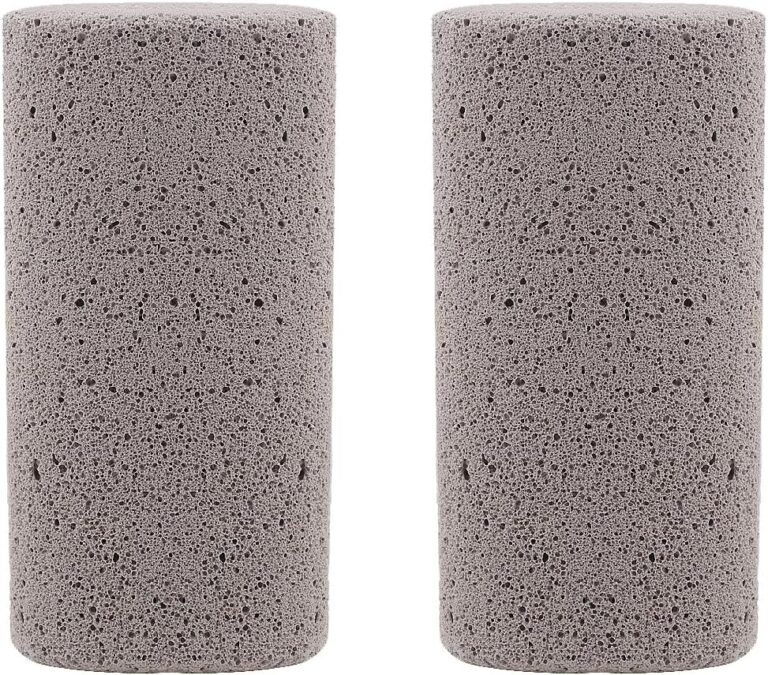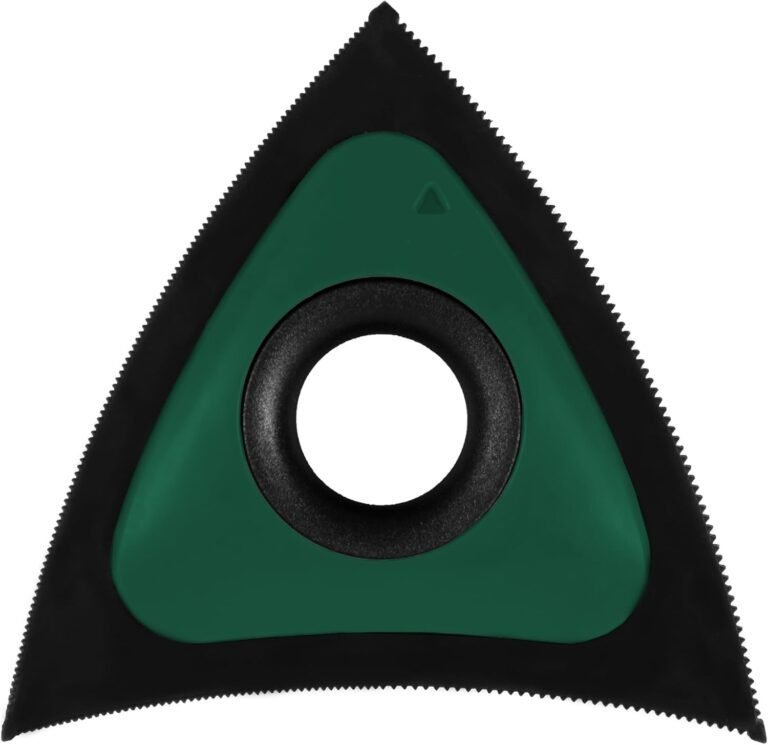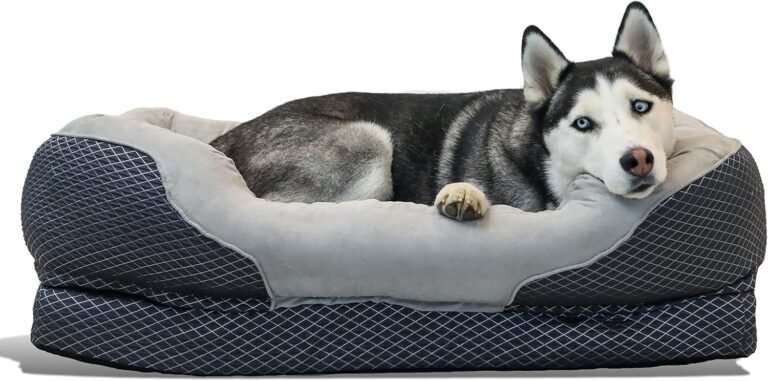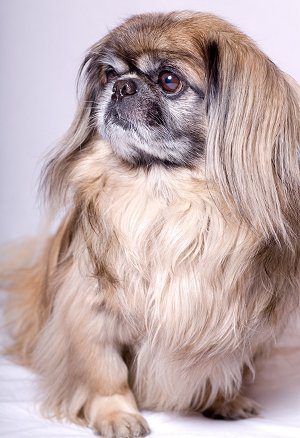
The Miniature Pekingese is a small dog breed known for its loyalty and affection, but it can be wary of strangers and may bark frequently. While these traits make it a good watchdog, early socialization with other pets is necessary to prevent aggression and dominance issues.
Careful maintenance of its beautiful coat is also required. Additionally, the Pekingese is an independent and intelligent breed that requires patient and creative training. Despite their small size, Miniature Pekingese can make good family pets, forming strong bonds with their owners.
However, they may not be the best choice for families with roughhousing or inexperienced with dog ownership.
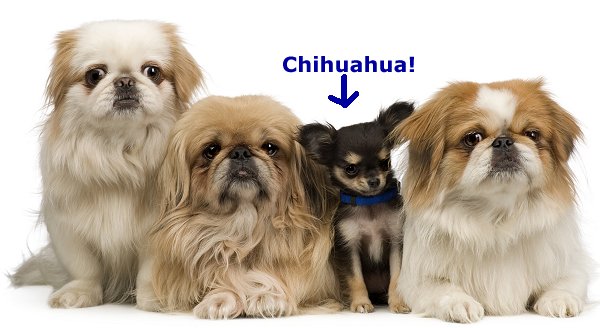
Pros And Cons Of Miniature Pekingese
Miniature Pekingese are adorable and lovable companions, but like every breed, they have their own unique set of pros and cons. In this section, we’ll explore some of the positive and negative aspects of owning a miniature Pekingese, highlighting their various traits and tendencies. Understanding these factors can help you make an informed decision before bringing one into your home.
Affectionate And Loyal
Miniature Pekingese are known for their unwavering loyalty and affectionate nature towards their owners. They form strong bonds with their families and become deeply devoted to them. This breed thrives on companionship and loves being in the presence of their loved ones. Their affectionate nature makes them excellent companions for individuals and families looking for a loyal and loving pet.
Intelligent And Strong-willed
Miniature Pekingese are highly intelligent dogs. They have a keen ability to understand their surroundings and quickly learn commands and tricks. However, their strong-willed nature can sometimes make training a bit challenging. These dogs are known to have a stubborn streak, so it’s important to approach training with patience and consistency. With proper training and positive reinforcement, miniature Pekingese can become well-behaved and obedient companions.
Watchdog Instincts
Miniature Pekingese possess natural watchdog instincts. They are always alert and cautious of their surroundings, making them excellent watchdogs. If they sense something out of the ordinary or if there’s a potential threat, they won’t hesitate to bark and alert their owners. This protective nature can provide a sense of security for their families and make them excellent companions for those looking for a loyal and protective pet.
While miniature Pekingese have many positive qualities, it’s important to consider the cons as well before making a decision. Taking into account their affectionate and loyal nature, intelligence, and strong-willed personality, as well as their watchdog instincts, will help you decide if this breed is the right fit for your lifestyle and preferences.
Care And Maintenance Of Miniature Pekingese
Miniature Pekingese are adorable little companions with beautiful coats and unique needs. To ensure their well-being, it is important to understand the care and maintenance required to keep them healthy and happy. In this section, we will discuss three important aspects to consider when caring for your miniature Pekingese: maintenance of their beautiful coats, daily exercise needs, and their preference for cold temperatures. Let’s dive in!
Maintenance Of Beautiful Coats
Miniature Pekingese are known for their stunning coats, which require proper maintenance to keep them in top condition. Their long, flowing fur should be brushed daily to prevent matting and tangling. Regular grooming sessions not only keep their coats looking their best but also help distribute natural oils, keeping their skin healthy.
Additionally, it’s important to pay attention to their hygiene, especially around their eyes and ears. The Miniature Pekingese’s facial structure can lead to tear stains and ear infections, so regular cleaning is necessary. Always use pet-safe products specifically designed for their delicate needs.
Daily Exercise Needs
Despite their small size, miniature pekingese have moderate exercise requirements. Daily walks and playtime are essential to keep them physically and mentally stimulated. Aim for at least 30 minutes of exercise per day, but be mindful not to overexert them, as they can be prone to breathing difficulties due to their pushed-in faces.
Engaging in interactive activities, such as puzzle toys or agility training, can be a great way to keep their minds sharp and provide additional mental stimulation. These activities also help prevent boredom, which can lead to destructive behaviour.
Preference for Cold Temperatures ???????????????
???????????????
Miniature Pekingese have a natural preference for colder temperatures. Due to their origins in ancient China, where they were bred to be companions for the imperial family, they are more tolerant of cold weather than heat. However, this doesn’t mean they can live solely outside in harsh conditions. They still need a warm and comfortable indoor environment as their primary living space.
If you live in a colder climate or during the winter months, make sure to provide them with extra layers, such as sweaters or coats, when going for walks. Pay close attention to signs of discomfort, such as shivering, and adjust their exposure to the cold accordingly. Protecting them from extreme temperatures is crucial to their well-being.
Behavior And Training Of Miniature Pekingese
When it comes to the behaviour and training of miniature Pekingese, there are a few key aspects to consider. Understanding their socialisation with other pets, their independent and stubborn nature, as well as their response to training and discipline, will help you effectively train and create a harmonious environment with these adorable little dogs.
Socialisation With Other Pets
Miniature Pekingese are generally good with other dogs and pets, but they should be socialised early and thoroughly to accept many people.
This breed can be aloof with strangers, although they are devoted to their families. Therefore, it is crucial to expose them to various people and animals during their puppyhood to avoid aggression or dominance issues in the future.
Independent And Stubborn Nature
Indeed, the Pekingese is dignified, supremely confident, and one of the most independent (and stubborn) of the toy breeds. They have a calm and quiet demeanour indoors, making them suitable for apartment living.
However, their independent nature can make them a bit challenging to train. Patience and creativity are key when it comes to training a miniature Pekingese. Bonding with your dog through positive reinforcement techniques and engaging activities can help overcome their stubbornness and build a strong training foundation.
Response To Training And Discipline
Miniature Pekingese are known for their intelligence but also for their independent streak. This means that training them may require extra time and patience.
When it comes to discipline, it’s important to note that Pekingese respond best to positive reinforcement methods. They are sensitive dogs who do not respond well to harsh or forceful training techniques. Providing rewards, praise, and consistent boundaries will motivate them to learn and follow commands.
Additionally, keeping training sessions short and engaging will help maintain their focus and prevent boredom.
In conclusion, miniature Pekingese are loyal and trainable dogs. However, their independent and stubborn nature requires a patient and creative approach to training. Socialising them early with other pets and exposing them to various people will help them become well-rounded and sociable companions.

Credit: www.facebook.com

Frequently Asked Questions Of Miniature Pekingese: What’s Good And Bad About ‘em?
What Are The Behavior Issues With Pekingese?
The Pekingese may have behavior issues such as being wary of strangers and barking. Proper socialization as a puppy can help prevent aggression and dominance problems with other pets. They make good watchdogs.
What Do I Need To Know Before Getting Pekingese?
Before getting a Pekingese, here’s what you need to know: – They are loyal and affectionate. – They are intelligent but strong-willed. – They can make good guard dogs. – Their beautiful coats require serious maintenance. – They need daily exercise but won’t wear you out.
– They enjoy cold temperatures.
How Long Do Mini Pekingese Live?
Mini Pekingese typically live for around 12-15 years. They are a small breed that requires proper care and a healthy lifestyle to maximize their lifespan. Regular vet check-ups and a balanced diet are essential for their well-being.
How Big Do Miniature Pekingese Get?
Miniature Pekingese typically grow to be small-sized dogs.
Conclusion
Miniature Pekingese have their share of strengths and weaknesses. On the positive side, they are loyal, affectionate, and can make excellent watchdogs. However, they can be aloof with strangers and require early socialization to avoid behavior issues. Additionally, their beautiful coats require regular maintenance.
Overall, with patience and proper training, Miniature Pekingese can be wonderful companions for those who appreciate their unique personalities and independent nature.
we will share guides, how-tos, food guides, and training tips for your beloved pets.

 ???????????????
???????????????